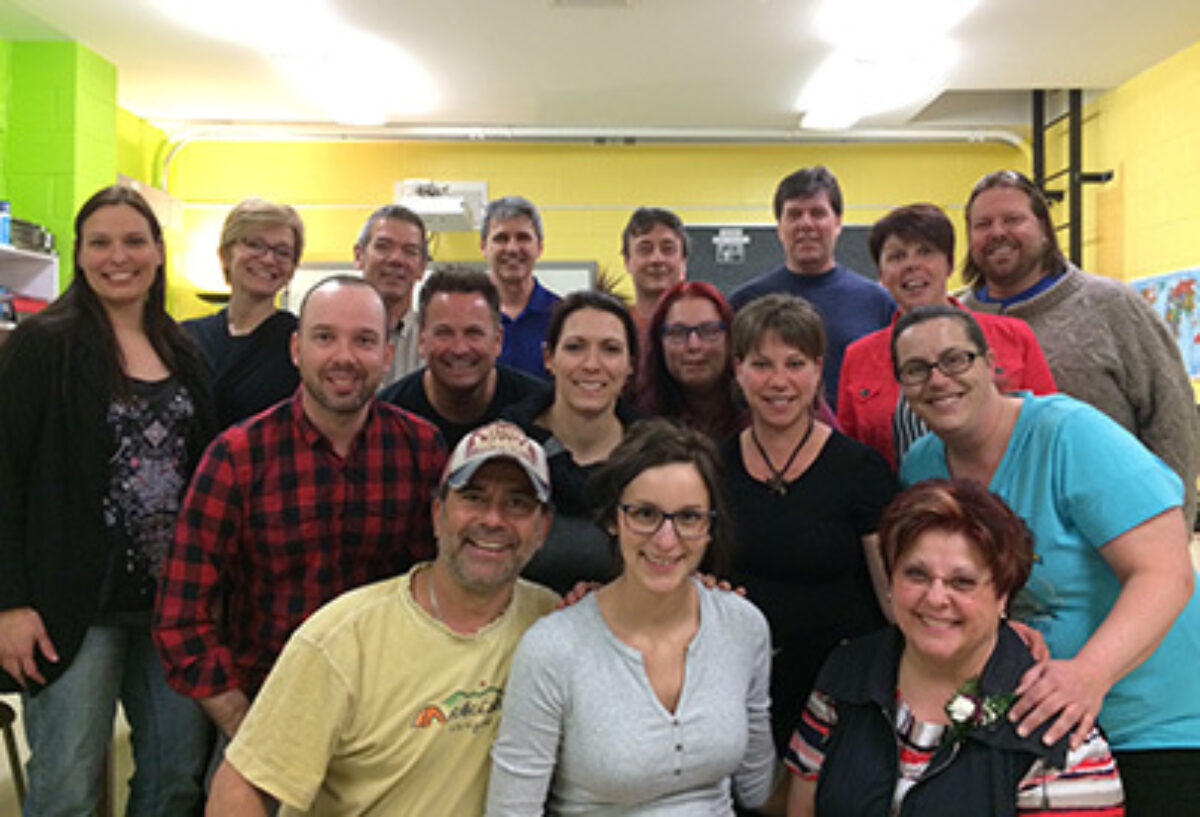Teachers help colleague during an allergic reaction

An evening in December, Stéphane Charron, a physical education teacher, was at the Christmas dinner for the staff of la Polyvalente Hyacinthe-Delorme. Everyone was having a good time eating and celebrating. “All of a sudden someone ran up to me asking for help. Audrey, one of our colleagues was having an allergic reaction.”
Stéphane rushed towards Audrey while his colleagues went to call 911. “Her lips were very swollen and it was difficult for her to breathe.” During that time, a few of his colleagues arrived on the scene with an EpiPen. As they waited for the paramedics to arrive, Stéphane put Audrey in the recovery position, ensuring she was safe. “I was unconscious, but I could hear everything Stéphane was saying. I’ll always remember: ‘You’re okay Audrey, everything will be alright, breathe gently,’” recalls Audrey.
Upon their arrival, the paramedics took Audrey to urgent care. A bit later, during medical tests, Audrey got the good news: she was going to be a mom. Today, she’s very appreciative for the teamwork by all of her colleagues.
“The ACT Program prepared me to know how to react. I developed a lot of confidence and I know what to do because I teach it year after year,” says Stéphane. “What I like the most is seeing my students taking what I teach them seriously. They are happy with what they’re learning. I had students come back to tell me that they’ve used some of the skills they’ve learned during their high school CPR classes.”
The ACT CPR High School program was implemented in 2006 in Polyvalente Hyacinthe-Delorme, in Saint-Hyacinthe, Quebec, thanks to the support of the Government of Quebec, and health partners, AstraZeneca Canada, Pfizer Canada, and Sanofi Canada.
The Advanced Coronary Treatment (ACT) Foundation is an award-winning, national charitable organization dedicated to establishing CPR and AED training programs in high schools across Canada. ACT raises funds to donate mannequins and teacher training to schools, and guides schools in program set-up and long-term sustainability. Over 3.2 million youth have been trained in CPR by their teachers through this lifesaving program to date.
